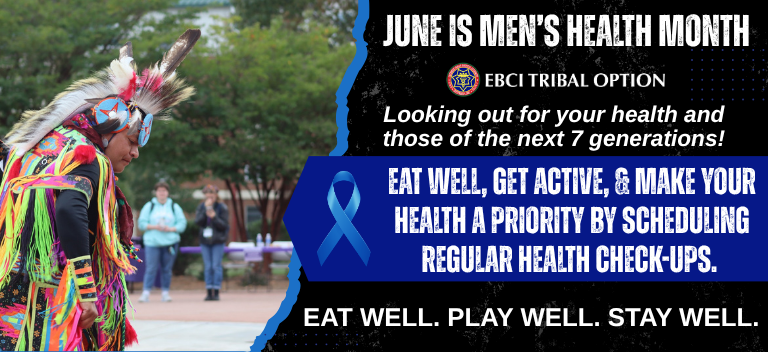June is Men’s Health Month and is dedicated to raising awareness about the unique health challenges men face and to encourage proactive, preventive care. While everyone should take charge of their health, this month serves as a vital reminder for men to prioritize their well-being and seek medical attention when needed.
Many men are hesitant to discuss health concerns with their providers- they are 50% less likely to do so than women. Men’s Health Month offers a supportive opportunity to break that silence and promote open conversations about physical and mental health. Whether you’re a man, work in public health, or care about someone who is, your voice can help spread awareness and encourage healthier habits.
Routine checkups and early intervention are key. Unfortunately, men in minority groups often face additional barriers, such as poor communication with healthcare providers. For example, American Indian/Alaskan Native men have a 47% higher death rate than their white counterparts.
Here are some key points to work towards men’s health:
Exercise: The American Heart Association recommends at least 150 minutes of moderate aerobic activity or 75 minutes of vigorous activity weekly, plus strength training twice a week.
Nutrition: A balanced diet rich in fruits, vegetables, lean proteins, nuts, and seeds supports energy and longevity. Avoid added sugars and unhealthy fats.
Sleep: Adults should aim for 7–9 hours of sleep per night. Sleep is essential for brain function, muscle recovery, and overall health.
Avoiding smoking and limiting alcohol intake are crucial steps toward better health.
Social connections and staying active in your community can also boost motivation and mental well-being.
Some concerns for men’s health are heart health, respiratory diseases, depression, suicide, substance use, liver disease, injuries and accidents, diabetes, sexual health like HIV/AIDS, and cancers including prostate, testicular, lung, colorectal, bladder, and skin cancers.
Men’s Health Month is about more than awareness—it’s about action. Encourage the men in your life to schedule checkups, adopt healthy habits, and speak openly about their health.
